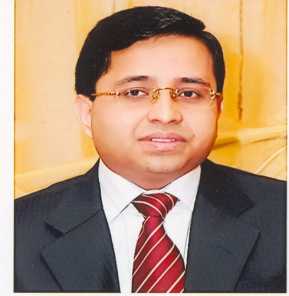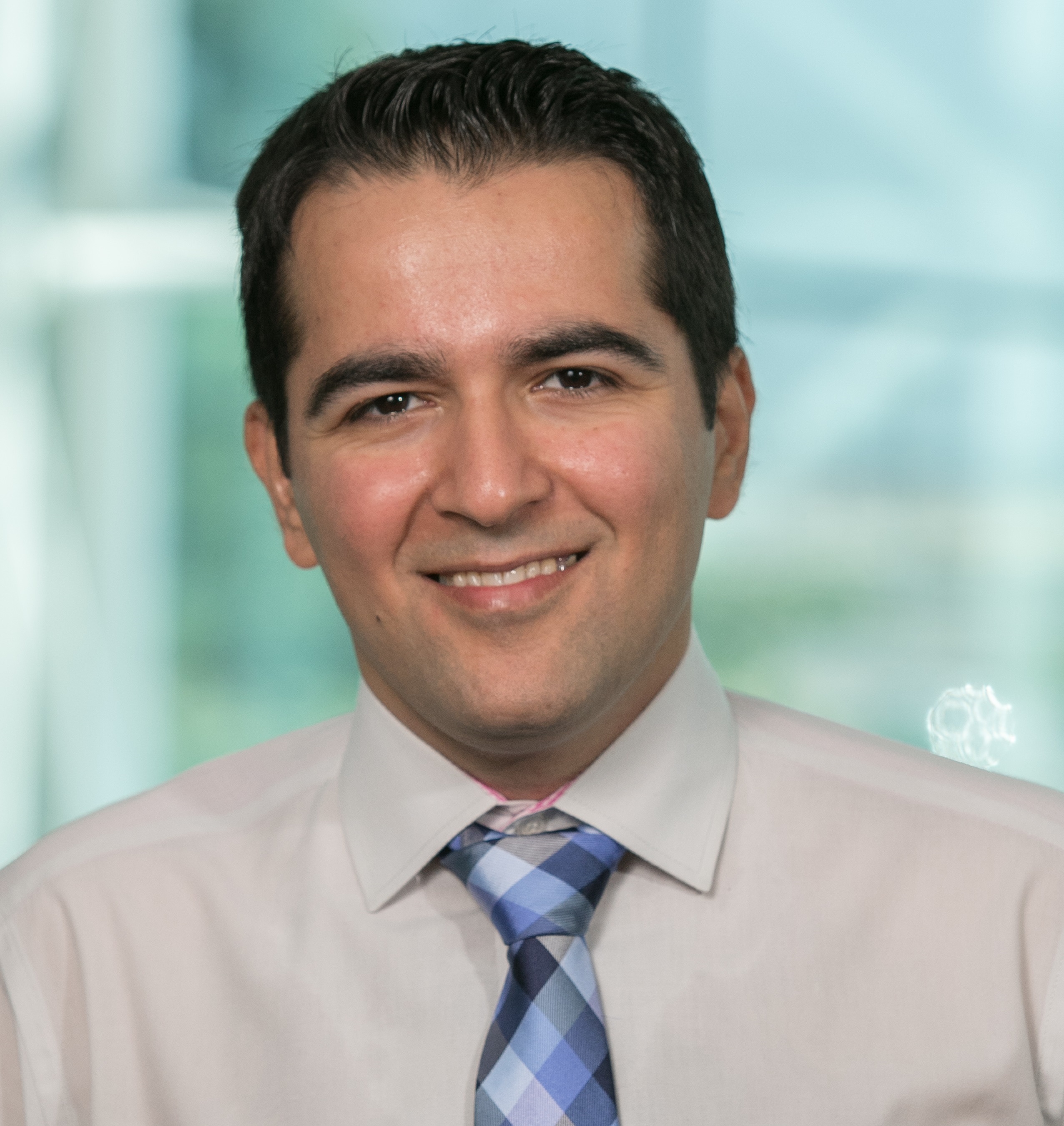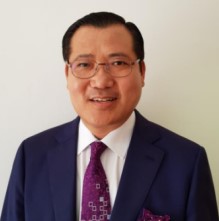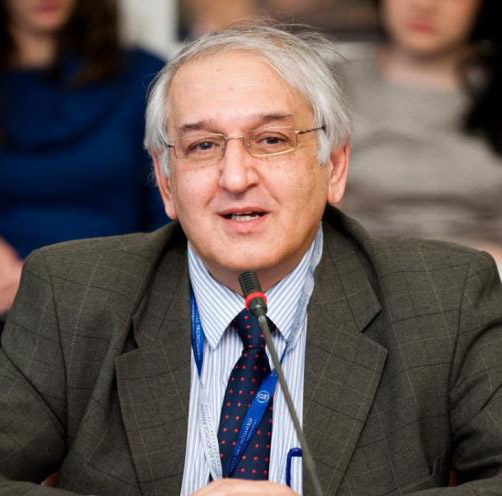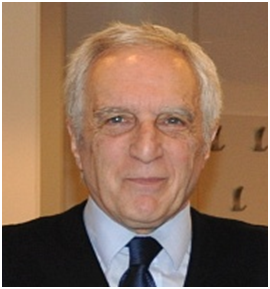Keynote Speakers
Dr. Md. Mamun Habib,Professor
School of Business & Entrepreneurship (SBE), Independent University, BangladeshVisiting Scientist, University of Texas - Arlington (UTA), USA
Speech Title: Applications of Big Data in Manufacturing Industry Supply Chain Management
Abstract: Big Data is defined as exceptionally large data sets, potentially numbering into billions of rows and parameters. In manufacturing, big data can include data collected at every stage of production, including data from machines, devices, and operators. With big data analytics in manufacturing, manufacturers can discover new information and identify patterns that enable them to improve processes, increase supply chain efficiency and identify variables that affect production.
Big Data Analytics in manufacturing is about using a common data model to combine structured business system data like inventory transactions and financial transactions with structured operational system data like alarms, process parameters, and quality events, with unstructured internal and external data. Improving efficiency across the business helps a manufacturing company control costs, increase productivity, and boost margins. Automated production lines are already standard practice for many, but manufacturing big data can exponentially improve line speed and quality.
Big data combined a set of data usually referred as large and complex datasets; enables the company to review real-time data flows. Digitized supply chains have the potential to dramatically lower costs, reduce lead time and increase product availability. Digitization makes the supply chain more effective, agile and responsive by sharing knowledge and collaborating complex supplier networks. As a result, this research contributes the practitioners to identify the current situation of their business and it will help them to take timely, fast and better decision.
Keywords: Big Data, Supply Chain, Manufacturing Industry
Biography: Prof. Dr. Md. Mamun Habib is a Professor at School of Business & Entrepreneurship (SBE), Independent University, Bangladesh (IUB). In addition, Dr. Habib is the Visiting Scientist of University of Texas – Arlington, USA. Prior to that, he was Associate Professor at BRAC Business School, BRAC University, Bangladesh; Asia Graduate School of Business (AGSB) at UNITAR International University, Malaysia; Dept. of Operations Research/Decision Sciences, Universiti Utara Malaysia (UUM), Malaysia and Dept. of Operations Management, American International University-Bangladesh (AIUB). He is the Editor-in-Chief in International Journal of Supply Chain Management (IJSCM), London, UK (SCOPUS Indexed). He accomplished his Ph.D. and M.S. with outstanding performance in Computer & Engineering Management (CEM) under the Graduate School of Business (GSB) from Assumption University, Thailand. His Ph.D. research was in the field of Supply Chain Management.
He has more than 18 years’ experience in the field of teaching as well as in training, workshops, consultancy and research. At present, he is supervising some Ph.D. students at locally and internationally. Furthermore, he has several Ph.D. involvements with UUM, UNIRAZAK, AIMST, UNITAR, Asia e University (AeU), Malaysia; Assumption University of Thailand; Institute for Technology and Management (ITM) – University and Birla Institute of Technology (BIT)–Deemed University, India, National Institute of Technology (NIT), India, SOA University, India; University of the Assumption, Philippines. He also involved with online learning programme at University of Roehampton (UoR), London, UK. He is actively involved with national and international research grant projects.
As a researcher, Prof. Habib published about 150+ research papers, including Conference Proceedings, Journal articles, and book chapters/books. He serves as the Editor-in-Chief/Lead Guest Editor/Editor/Editorial Board Member/Reviewer of more than 20 journals, particularly Elsevier (Scopus) and Thomson Reuters (Web of Science) Indexed Journals. Also, he delivers lecture as Keynote Speaker at 50+ international conferences, at various countries, particularly Taiwan, USA, China, Indonesia, Malaysia, Thailand, Singapore, Turkey, Korea, India, UK, Greece, Bulgaria, Australia, Italy, etc. He also serves as General Chair, Program Chair, Technical Chair, Organizing Committee Member, Technical Committee Member, Track Chair, Session Chair as well as Reviewer of numerous international conferences. He received Best Track Chair Award at IEOM’2012 Conference.
His core research areas are supply chain management, production & operations management, operations research, research methodology, engineering management, technology management, and educational management. Finally, Prof. Habib is an active member of different professional organizations, including IEEE (Senior Member), IEOM (President, SCM Technical Division), IETI (Senior Member and Board of Director), IRED (Fellow), GRDS (Vice-President), IEB, AIMS, INFOMS, just to name a few. He is involved with QS World University Ranking and Times Higher Education Ranking as an academician.
Dr. Amir H. Gandomi, Professor
Faculty of Engineering & Information Technology, University of Technology Sydney, AustraliaSpeech Title: Big Data Analytics and Optimization using Evolutionary Intelligence
Abstract: Evolutionary Computation (EC) has been widely used during the last two decades and has remained a highly-researched topic, especially for complex engineering problems. The EC techniques are a subset of artificial intelligence, but they are slightly different from the classical methods in the sense that the intelligence of EC comes from biological systems or nature in general. The efficiency of EC is due to their significant ability to imitate the best features of nature which have evolved by natural selection over millions of years. The central theme of this presentation is about EC techniques and their application to complex smart cities and infrastructures problems. On this basis, first I will talk about an evolutionary approach called genetic programming for data mining. Applied evolutionary computing will be presented, and then their new advances will be mentioned such as big data mining. Here, some of my studies on big data mining and modelling using EC and genetic programming, in particular, will be presented. Case studies’ topics include forward design, and inverse design. In the second section, the evolutionary optimization algorithms and their key applications in the design optimization of complex and nonlinear engineering systems will be discussed. It will also be explained how such algorithms have been adopted to engineering problems and how their advantages over the classical optimization problems are used in action. Optimization results of large-scale engineering systems and many-objective problems will be presented which show the applicability of EC. Some heuristics will be explained which are adaptable with EC and they can significantly improve the optimization results.
Biography: Amir H. Gandomi is a Professor of Data Science and an ARC DECRA Fellow at the Faculty of Engineering & Information Technology, University of Technology Sydney. Prior to joining UTS, Prof. Gandomi was an Assistant Professor at Stevens Institute of Technology, USA and a distinguished research fellow in BEACON center, Michigan State University, USA. Prof. Gandomi has published over two hundred journal papers and seven books which collectively have been cited 23,000+ times (H-index = 70). He has been named as one of the most influential scientific minds and Highly Cited Researcher (top 1% publications and 0.1% researchers) for four consecutive years, 2017 to 2020. He also ranked 18th in GP bibliography among more than 12,000 researchers. He has served as associate editor, editor and guest editor in several prestigious journals such as AE of IEEE TBD and IEEE IoTJ. Prof Gandomi is active in delivering keynotes and invited talks. His research interests are global optimisation and (big) data analytics using machine learning and evolutionary computations in particular.
Dr. Jung Wan Lee, Professor
School of International Economics and Trade, Anhui University of Finance and Economics, ChinaSpeech Title: The Data Sharing Economy and Open Governance of Big Data as Public Good
Abstract: The data sharing economy depends on access to data as a resource for products and services. Since the quality of information that can be drawn from data increases with the available amount and quality of the data, businesses involved in the data economy have a great interest in accessing data from other market players and sharing data with other stakeholders. Despite the growing need for access to data and evidence of the economic and social benefits, data access and sharing remains below its potential. Individuals, businesses, and governments often face barriers to data access and sharing, which may be compounded by reluctance to share, including within organizations and across sectors. To address these challenges, this paper focuses on finding possible solutions for the better data sharing economy. This paper 1) discusses opportunities and challenges of open data and the data sharing economy; limitations of private sector data and issues with government data open; arguments for “big data as a public good” ; and 2) introduces various open government data initiatives; open data ecosystems; open governance networks initiatives; and 3) suggest possible solutions for the data sharing economy, including the governance and management, the legal and policy frameworks, and the technical standards for open data with proposing an open data governance model for the data sharing economy. With understanding the model of open data governance aspects as a starting point, this model may surface how open data governance becomes salient for governments, private sectors, and all stakeholders as well.
Keywords: Big Data, Open Data, Public Good, Open Government, Open Data Governance, Data Sharing Economy
Biography: Professor Lee, Professor of Anhui University of Finance and Economics, has extensive international teaching experience in International Business and Economics, Marketing, and Electronic Commerce. He has been at Soongsil University in South Korea for three years, Kazakh British Technical University in Kazakhstan for five years, and Boston University in the United States for recent ten years. Professor Lee has published over fifty research papers and authored three books on entrepreneurship, small business, and venture business management. He also has served as Editor-in-Chief for the Journal of Asian Finance, Economics and Business and the Journal of Distribution Science.
Dr. Fuad Aleskerov, Professor
Higher School of Economics, National Research University; Institute of Control Sciences, Russian Academy of Sciences, RussiaSpeech Title: Big data Analysis of Consumers' Busket, Address Marketing and Measures Preventing Customers to Leave a Retail Network
Abstract: The work is based on the analysis of annual data of purchases of more than 1.4 M customers of 200 thousand of goods during more than one year in one European retail network. New methods of data analysis were developed and applied. Many new insights have been observed on customers' behavior.
Biography: Prof. Fuad Aleskerov got his Ph.D. in Control in Socio--Economic Systems in 1981. He is now head of Department of Mathematics for Economics, head of International Centre of Decision Analysis and Choice, both at the National Research University Higher School of Economics, and head of Laboratory of Choice Theory and Decision Analysis, Institute of Control Sciences, Russian Academy of Sciences, Russia.
So far, Prof. Fuad Aleskerov has published 10 books, more than 200 articles in 30 different fields of science, more than 100 in peer-reviewed journals and volumes, and he also has 6 copyright certificates for patents. He is a member of Editorial Board for many journals, including the International Journal of Information Technologies and Decision Making (indexed by SCIE) and Annals of Data Analysis and he is vice-editor-in-chief of Journal of New Economic Association (in Russian). He is the member of Academia Eurepaea, the Society for Social Choice and Welfare; International Economic Association; American Mathematical Society; New Economic Association, Russia.
Besides, he was invited speaker for more than 150 conferences and workshops and invited expert for many companies and governmental organizations, such as AEG “Metro” (Germany) and Administration of the President of Russia Federation.
Research Interests: Data Analysis, Risk Management, Decision Making in Banks, Operations Research, Marketing and Measures
Dr. Luiz Moutinho, Professor
Visiting Professor of Marketing at Suffolk Business School, Faculty of Arts, Business and Applied Social Science, University of Suffolk, Ipswich, England, UKSpeech Title: Envisioning Big Data
Abstract: The presentation starts by mentioning the amount of data produced in the world and the increasingly quantified enterprise. People analytics and programmed species are covered. The worth and value of big data are analysed. The issues of dark data, data agility and predictive analytics are then presented .The area of computation is addressed by introducing serverless computing and Cloud Based Cognitive Quantum Computing. Important issues related to consumers´ big data, like data deluge, privacy, personal data and data vulnerabilities are dissected next. Data virtualisation and visualisation are then discussed. The new concept of LI-FI, the transmission of data through light is introduced. Algorithms, machine learning deep learning and artificial neural networks are then covered. Finally, the presentation ends by introducing autonomous data machines and the concept of data for good.
Biography: In 2020 Luiz Moutinho was elected as the member of The Academia Europaea.
In 2017 Luiz Moutinho received a degree of Professor Honoris Causa from the University of Tourism and Management Skopje, North Macedonia.
He completed his PhD at the University of Sheffield in 1982.
He has been a full professor for 32 years and held posts in UK and USA; he has held visiting professorship positions at 27 universities, 17 of them in EU countries.
During 2015 - 2017 he was professor of BioMarketing and Futures Research at the DCU Business School, Dublin City University, Ireland (the first chair in the world on both domains - BioMarketing and Futures Research). Previously, and for 20 years, he had been appointed as the Foundation Chair of Marketing at the Adam Smith Business School, University of Glasgow, Scotland, UK.
He was the director of the doctoral programs at Confederation of Scottish Business Schools (1987 – 1989), Cardiff Business School (1993 – 1996) and University of Glasgow (Doc. Program in Management, 1996 – 2004).
Professor Moutinho is the founding editor-in-chief of the Journal of Modelling in Management (JM2) and co-editor-in-chief of the Innovative Marketing Journal. He has 5 associate editorships as well as being in editorial boards of 50 int’l academic journals.
His areas of research interest encompass futures research and marketing and management futurecast, biometrics and neuroscience in marketing, artificial intelligence, algorithmic self, wearable devices detecting human emotions, evolutionary algorithms, human-computer interaction, artificial neural networks in marketing and modelling consumer behaviour.
He has developed a number of conceptual models in areas such as tourism destination decision processes, automated banking, supermarket patronage, etc. The testing of these research models has been based on the application of different statistical, computer and mathematical modelling techniques.
Professor Moutinho has over 155 articles published in refereed academic journals, 34 books and 16,115 academic citations, the h-index of 57 and the i10-index of 216 (Google Scholar, 4th Feb. 2020).
Dr. Christopher Rauh
University of Cambridge and Trinity College Cambridge, UKSpeech Title: Creating Risk Measures Using Vast Amounts of Text
Abstract: We predict the risk of political violence using a newspaper-text corpus of more than 5 million articles. We derive topics from text through unsupervised machine learning and then integrate these topics into a supervised machine learning framework to forecast risk.
Biography: Christopher is a Lecturer at the University of Cambridge, a Fellow of Trinity College Cambridge, and a Research Affiliate at CEPR. Before joining the University of Cambridge, he was an Assistant Professor at the University of Montreal. He is also an Associate Editor of the Economic Journal.
Christopher studies policy-relevant questions related to the labor market and political economy. He has designed many survey modules and collected primary data. He also works with complex datasets and applied methodologies, including machine learning and structural modelling.
He has published in top Economics and Political Science journals, such as American Political Science Review, Journal of European Economic Association, and Journal of Public Economics. His work has been featured widely across the media including The Guardian, China Global Television Network, Washington Post, the Economist, the BBC, and Der Spiegel. He is listed amongst the top 3% of Economists in terms of research output in the last ten years.

